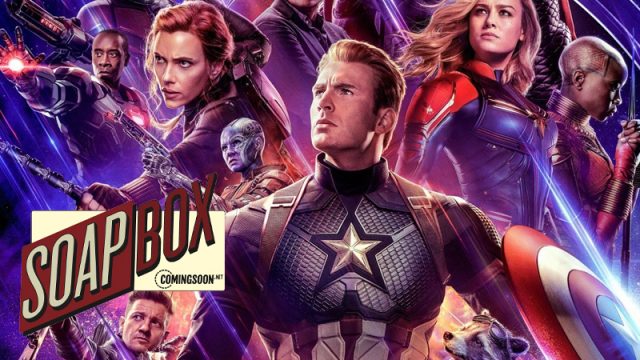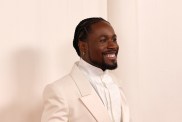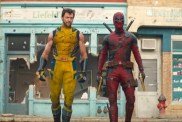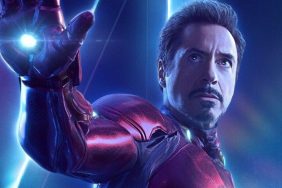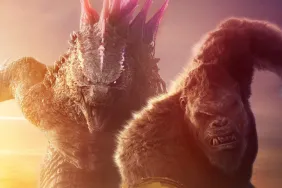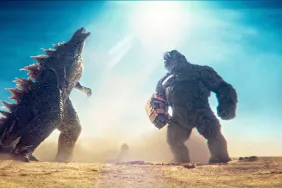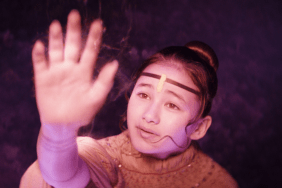Marvel has done an impeccable job crafting the one and — as of now — only successful cinematic universe (okay, maybe The Conjuring). Other studios have tried and failed to create their own intertwined franchises over the years, but none have unlocked the secret to the MCU’s sustained success.
So, what gives? What is Marvel doing differently than the others? Here’s one theory: a heavy focus on chronology, or an emphasis on releasing films in the right order.
RELATED: Black Widow Moves to Disney+ & Theaters Day-and-Date!
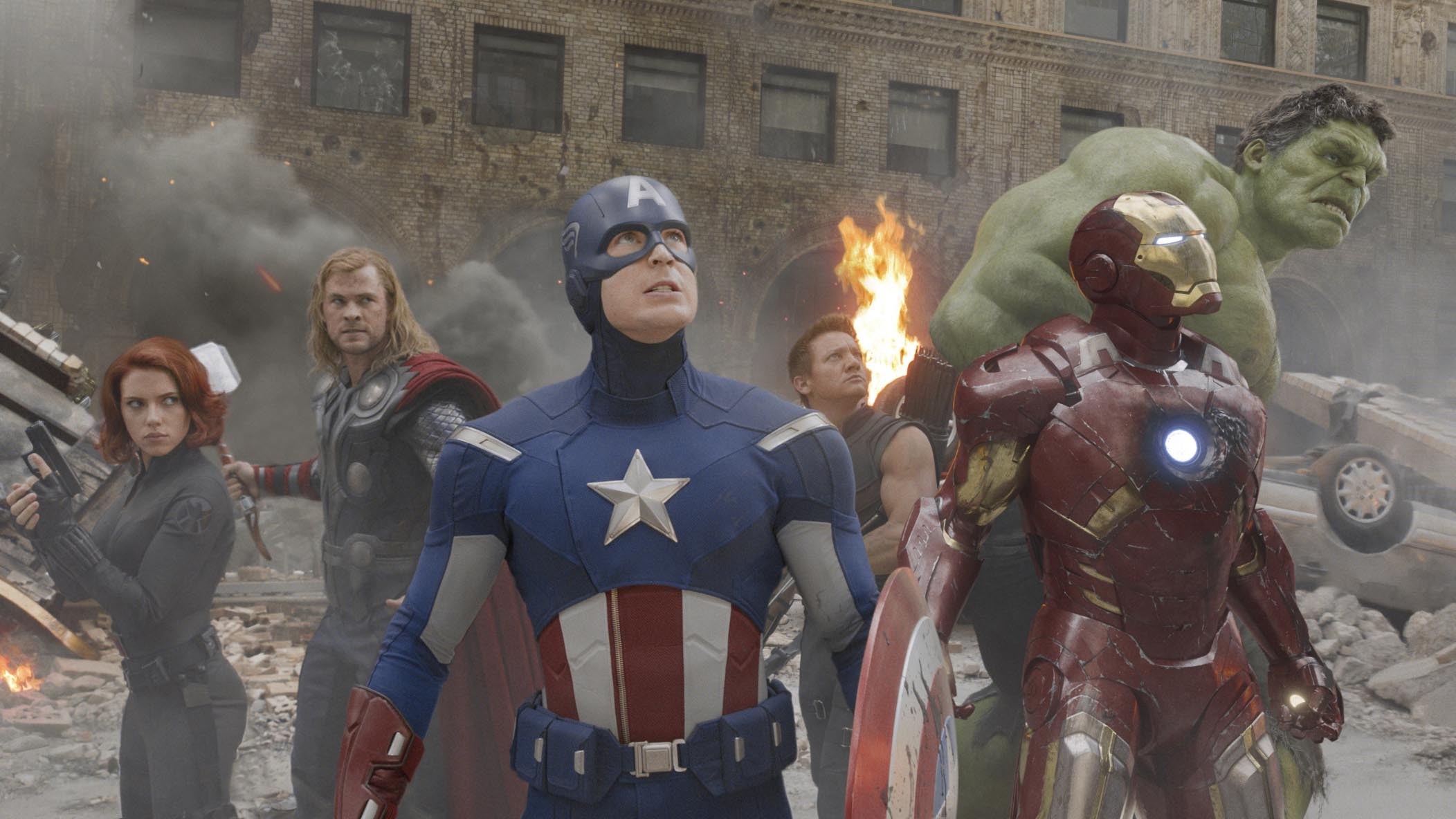
Let’s take a step back. Remember Universal’s short-lived Dark Universe that more or less began and ended with the Tom Cruise debacle The Mummy in 2017? The issue with that would-be franchise starter was that it was simply too much too soon. There were mummies, vampires and a random appearance by Dr. Jekyll and Mr. Hyde (played by Russell Crowe). The film was simply too weird for general audiences who also saw through the façade and recognized another cynical cash grab — a not-so-subtle Avengers imitation by way of monsters with Crowe standing in for Samuel L. Jackson.
For Marvel, it’s all about timing and balance, Daniel Son.
Let’s start at the beginning with 2008’s Iron Man, a relatively simple adventure that leaned more on Robert Downey Jr.’s charisma than CGI-fueled battle sequences. Jon Favreau’s film was likeable and fun. And while there were a few S.H.I.E.L.D. references and an end credit cameo featuring Mace Windu, Iron Man stood firmly as a standalone event that just happened to spill over into Louis Leterrier’s The Incredible Hulk a month later — with the crossover serving more as a marketing ploy to get people interested in Hulk than an outright cinematic universe declaration.
Remarkably, it took two years for Marvel to release Iron Man 2, which really got things cooking by formally announcing S.H.I.E.L.D., introducing characters such as Nick Fury and Black Widow and teasing something called the Avengers Initiative.
Still, Marvel played things pretty close to the chest and relied on audience reaction to drive their slate. Lukewarm response to The Incredible Hulk and Iron Man 2, for example, proved audiences weren’t ready for dark and dramatic takes on these superheroes. So, the studio lightened the mood considerably with Thor and Captain America: First Avenger. Thor, in particular, feels like two different movies smashed together. What starts as a melodramatic Shakespearean-tragedy brimming with fantastical components and containing a scene-chewing Anthony Hopkins (in full-on Anthony Hopkins-wants-Oscar mode) quickly morphs into a cheesy fish-out-of-water rom com starring Chris Hemsworth and Natalie Potman.
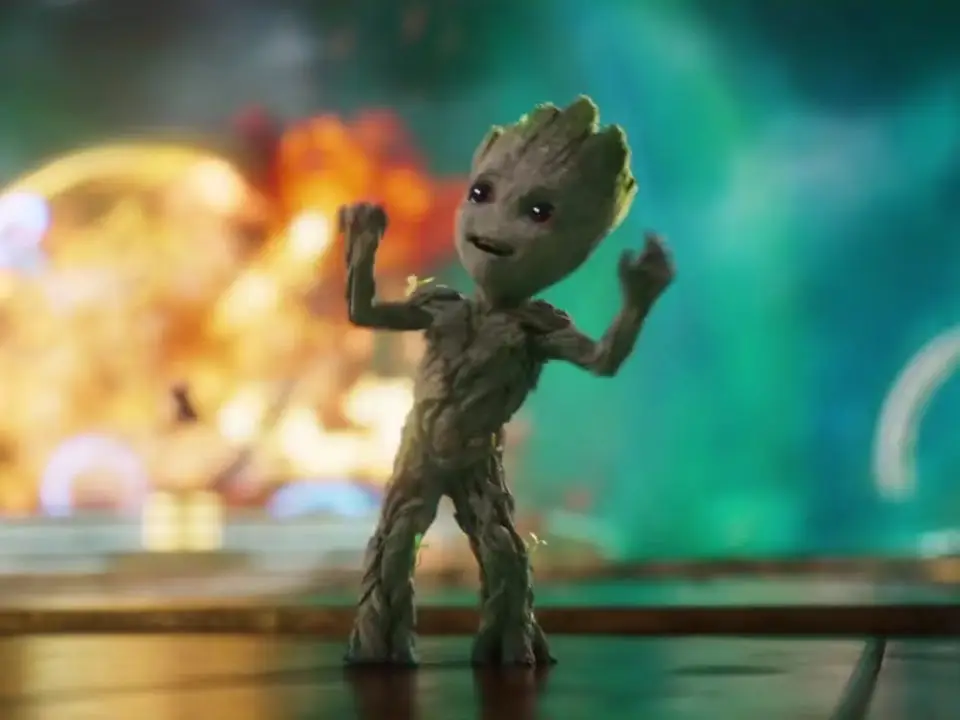 Captain America, for all its emphasis on outlandish villains such as Red Skull and Hydra, favored nostalgia over novelty — the Rocketeer dressed in red, white and blue — and managed to keep its plot generally care-free despite its WWII setting.
Captain America, for all its emphasis on outlandish villains such as Red Skull and Hydra, favored nostalgia over novelty — the Rocketeer dressed in red, white and blue — and managed to keep its plot generally care-free despite its WWII setting.
Yet, there are a number of insane ideas introduced in both Thor and Captain America, namely the all-important Tesseract (our first introduction to the Infinity Stones, even if Marvel didn’t know it at the time) and a lot of mumbo jumbo regarding cosmic elements that essentially laid the groundwork for Guardians of the Galaxy, Captain Marvel and the upcoming Eternals. Viewers were simply too enamored by the two Chris’ hulking physiques to realize they were being led down a rabbit hole of madness. Though, it is important to note the general lack of Frost Giants in subsequent MCU films, Thor or otherwise, as that idea simply didn’t take.
And then, after the prolonged setup, the big one: Avengers. Again, Marvel was extremely careful with its highly anticipated team-up extravaganza and leaned heavily on Joss Whedon’s snarky dialogue and blockbuster-fueled action to craft an easy-on-the-eyes crowd pleaser surreptitiously saturated in fantasy. Viewers more readily swallowed the film’s more outlandish elements — the Chitauri, mind control by way of evil scepter, Hulk, wormholes and some guy named Thanos — in part because the surrounding components, specifically the heroes (carefully molded over four years), were so much damned fun.
Avengers’ success injected Marvel with a huge dose of confidence. So much so that the studio tried its hand at auteur filmmaking, enlisting Shane Black, Edgar Wright, Alan Taylor and James Gunn to helm its next batch of superhero epics. Except, after Black’s Iron Man 3 divided audiences (despite its enormous box office), the studio effectively reworked Taylor’s Thor 2 as a comedy and bumped Edgar Wright from Ant-Man. Only Gunn was able to effectively push his vision through the Marvel template, leading to Guardians of the Galaxy, the studio’s most creatively ambitious film to date — and that’s not hyperbole. There was a lot riding on Guardians as it would further establish the cosmic universe teased in Thor and Captain America and set the tables for Avengers: Infinity War and Avengers: Endgame by cementing Thanos as the series’ big bad and offering a stronger backstory for the Infinity Stones.
Marvel successfully recycled this pattern of alternating back and forth between grounded superhero adventures and outlandish fantasy by blanketing its films with broad comedy. For instance, despite its many way-out-there elements and peculiar characters, Guardians of the Galaxy still feels like a Marvel film because its humor reflects the humor found in other Marvel films. Even Captain Marvel, with all its Star Trek-like alien designs and sci-fi shenanigans, works because, despite its lack of novelty or memorable moments (to say nothing of its bland protagonist and ho hum action sequences), the film still hits its comedic beats to perfection. And the crowd goes wild.
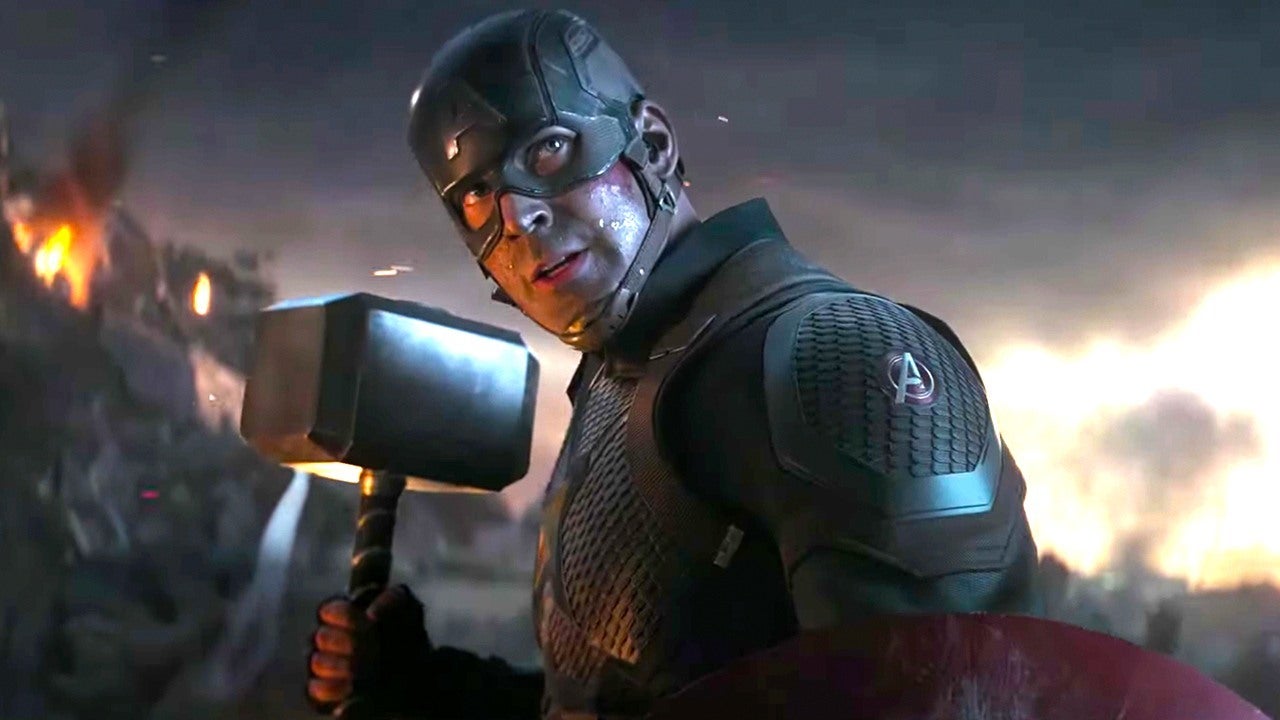 However, entries like Guardians and Captain Marvel are rarely released back-to-back. In fact, both films were followed by an Avengers movie; and it’s worth noting the Guardians didn’t figure into the plot of Age of Ultron and Captain Marvel played only a minor role in Endgame, as if the studio wasn’t convinced of the characters’ validity.
However, entries like Guardians and Captain Marvel are rarely released back-to-back. In fact, both films were followed by an Avengers movie; and it’s worth noting the Guardians didn’t figure into the plot of Age of Ultron and Captain Marvel played only a minor role in Endgame, as if the studio wasn’t convinced of the characters’ validity.
In fact, outlandish entries like Doctor Strange are usually followed by surefire hits like Guardians of the Galaxy Vol. 2 or grounded entries stripped clean of fantasy elements. Thor: the Dark World, for example, released right before Captain America: The Winter Soldier, which gave way to the aforementioned Guardians of the Galaxy. Fantasy. Grounded adventure. Fantasy. Grounded adventure, and so on.
Even the recent slate of TV shows on Disney+ have followed suite, though, COVID screwed up the release order somewhat. Black Widow was supposed to release last summer trailed closely by Falcon and the Winter Soldier (originally slated for release in August of 2020) and The Eternals (originally set for a November 2020 release), followed by WandaVision, Loki and Shang-Chi and the Legend of the Ten Rings. And while this release structure is slightly askew from the norm (Black Widow and Falcon and the Winter Soldier are quite similar in nature), Marvel is still very clearly releasing its slate of films in an order that keeps each film feeling fresh and dissimilar from the previous entry.
All this to say, Marvel’s success lies in the way it carefully feeds its audience. A little drama here, some fantasy there, sprinkled with just enough action — all doused with a familiar comedy aesthetic that serves as the franchise’s through line. As weird as it is to say, Marvel is kinda like Hannibal Lector and we are all Will Graham — slowly succumbing to our cannibalistic tendencies after sampling Lector’s food offerings for years. Except, Marvel has changed our appetite to crave even the most outlandish of adventures … 10 years ago would anyone have been looking forward to The Eternals?
RELATED: CS Soapbox: What is the WandaVision/The Incredible Hulk Connection?
For comparison’s sake, WB’s DC universe went dark and heavy right out of the gate with Man of Steel, Batman vs. Superman: Dawn of Justice and Suicide Squad before doing an about face and lightening the mood far too drastically with 2017’s Justice League — a change in style similar to RoboCop and RoboCop 3. Some fans enjoyed this contrasting approach to the MCU’s lighthearted antics, but general audiences simply weren’t prepared for Zack Snyder’s darker inclinations. It was all too much too soon. A better approach, at least from a box office perspective, might have been to deliver something akin to Shazam! in-between Man of Steel and BvS; or start Superman’s solo film on a lighter note before venturing into darker territory a few films down the road.
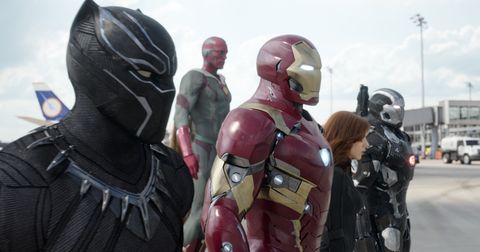 Similarly, the MonsterVerse, which kicked off with 2014’s Godzilla and carried over to 2017’s Kong: Skull Island and Godzilla: King of the Monsters, failed to ignite crowds mainly due to an emphasis on large-scale action and extraordinary characters — Mothra and Monster Zero — audiences weren’t ready to meet. These films needed the steady build up that fueled Marvel’s Phase one and topped out with The Avengers… and a stronger hero (such as Kong) to root for.
Similarly, the MonsterVerse, which kicked off with 2014’s Godzilla and carried over to 2017’s Kong: Skull Island and Godzilla: King of the Monsters, failed to ignite crowds mainly due to an emphasis on large-scale action and extraordinary characters — Mothra and Monster Zero — audiences weren’t ready to meet. These films needed the steady build up that fueled Marvel’s Phase one and topped out with The Avengers… and a stronger hero (such as Kong) to root for.
Oddly enough, the DCEU seems to have come together with Zack Snyder’s Justice League, a film that successfully continues story elements introduced in Man of Steel and BvS but packages them into a crowd-pleasing event film. Meanwhile, Godzilla vs. Kong is generating plenty of buzz despite serving as the follow up to the box office dud Godzilla: Kong of the Monsters. In each instance, the films in question deviated slightly from the course established in previous films. ZSJL is lighter than its predecessors and places a stronger emphasis on hope than Man of Steel and BvS, while Godzilla vs. Kong looks to be a little more engaging than Michael Dougherty’s Godzilla sequel; and boasts an enticing matchup between two well-known characters.
Even so, the trick for a successful cinematic universe seems to lie in crafting a series of films that are undeniably different than one another. Either start light and go dark (as was the case with Star Wars) or start dark and go light (riskier but still effective); and don’t feed audiences too much weirdo juice too soon. A slow and steady diet gets the job done. Too much of any one thing merely leads to indigestion.
